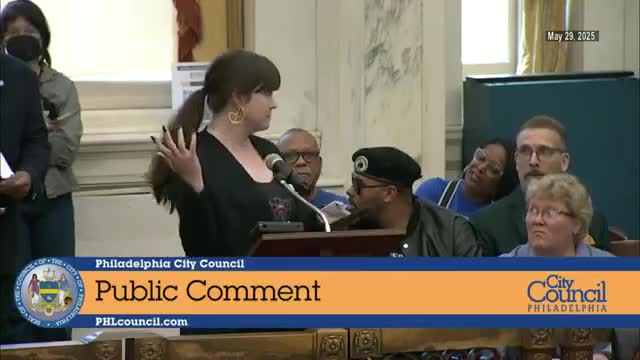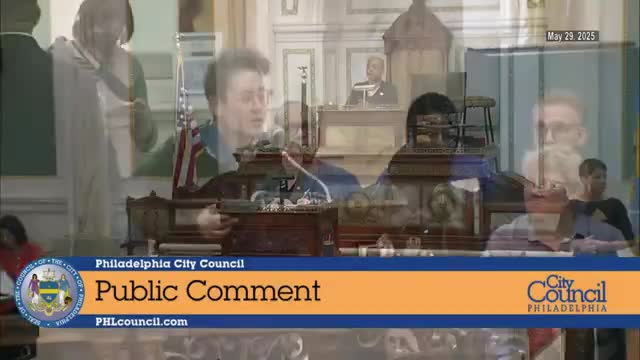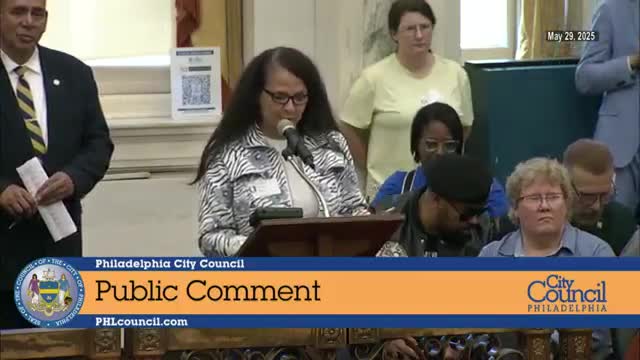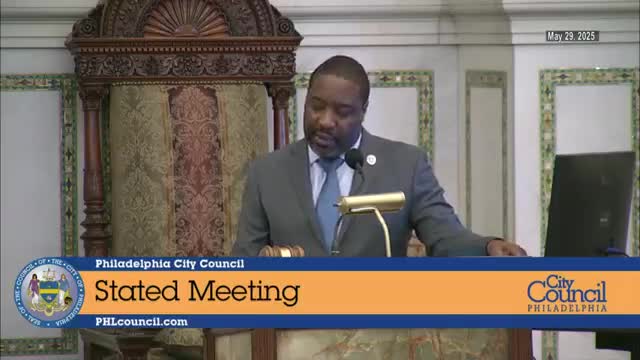Article not found
This article is no longer available. But don't worry—we've gathered other articles that discuss the same topic.

Council designates Philadelphia "Original Music City" and hears musicians’ calls for funding and a city music office

Council asks federal government to maintain antitrust litigation against Meta; resolution adopted

Council approves protected bike lane and traffic changes on 40th Street after heated public comment

